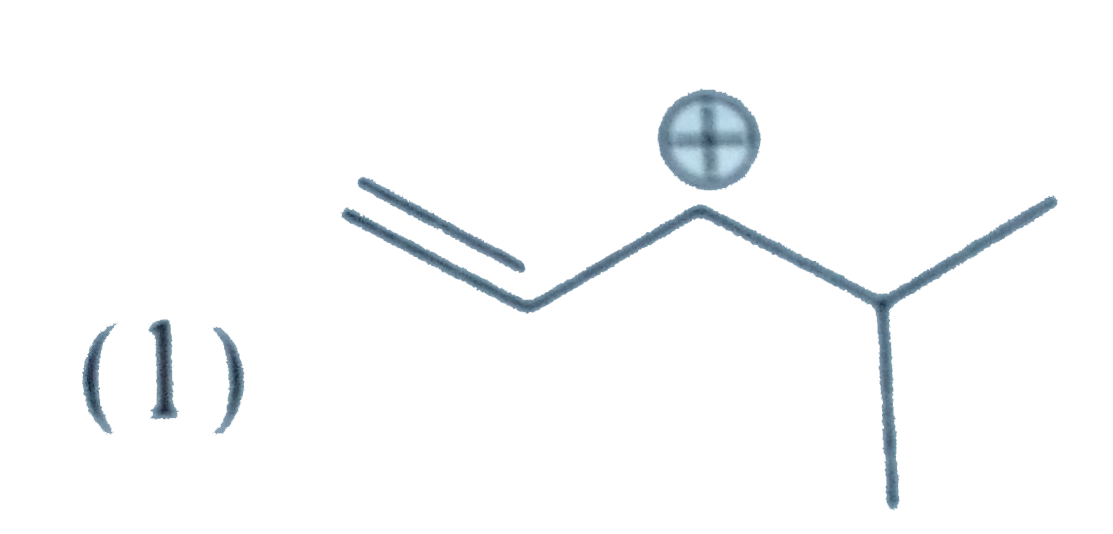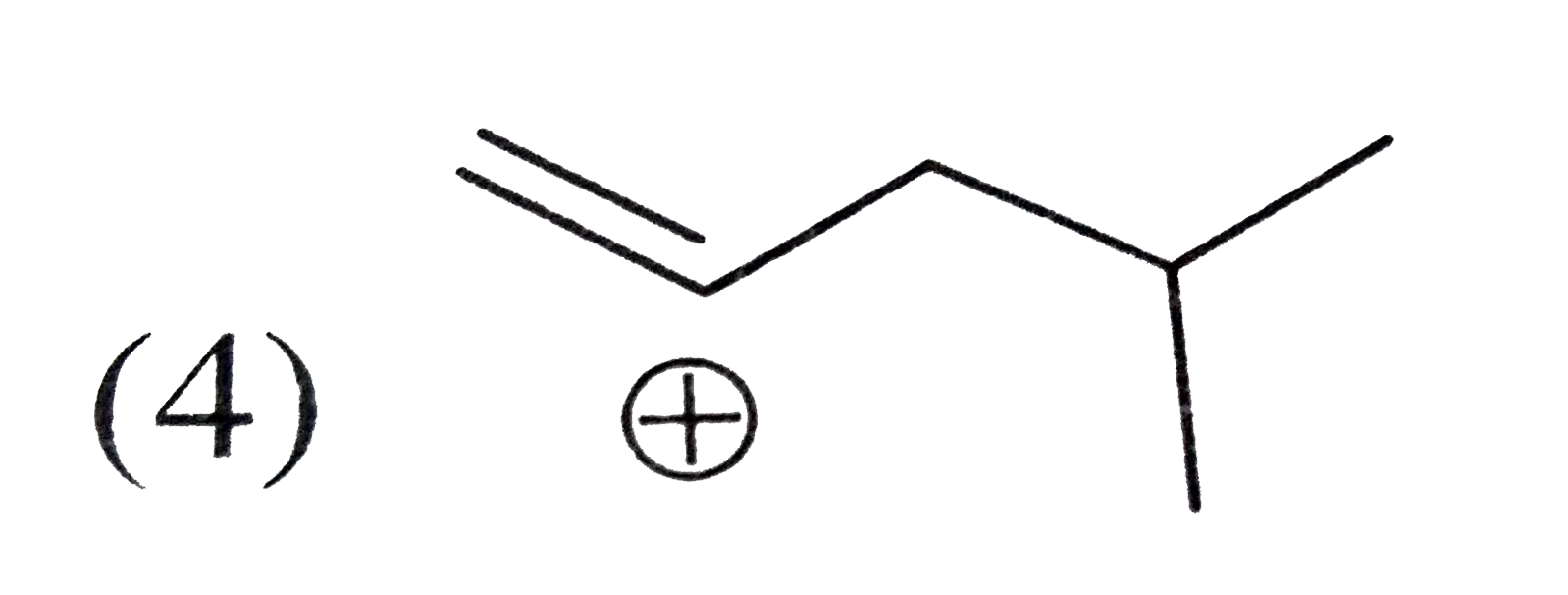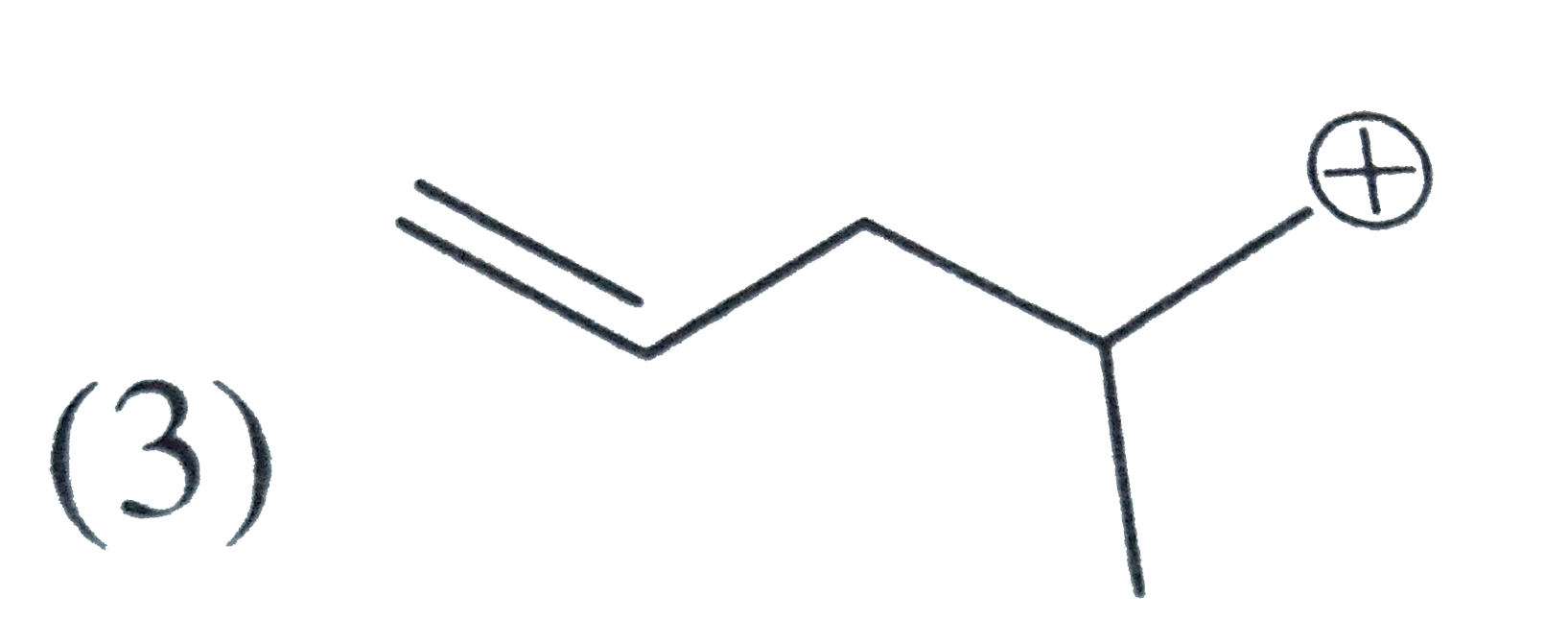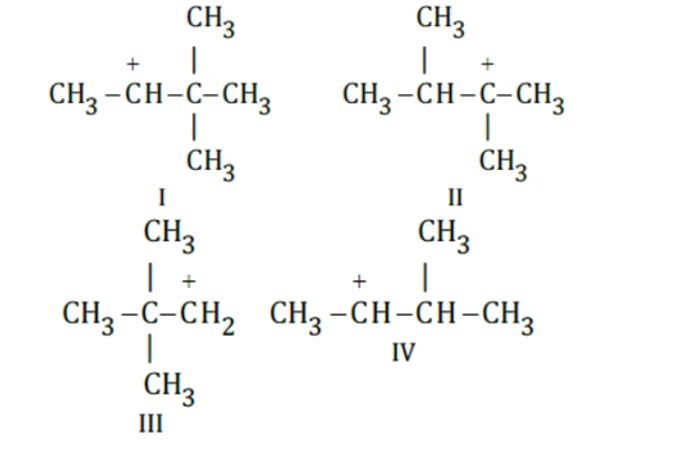Which carbocation is most stable




The correct Answer is:A
To determine which carbocation is the most stable among the given options, we can follow these steps:
Step 1: Identify the Types of Carbocations
- Carbocations are positively charged carbon species. Their stability is influenced by the degree of substitution (primary, secondary, tertiary) and resonance.
- Primary (1°) carbocations have one alkyl group attached.
- Secondary (2°) carbocations have two alkyl groups attached.
- Tertiary (3°) carbocations have three alkyl groups attached.
Step 2: Analyze Each Option
1. First Option: This carbocation is a secondary carbocation with resonance stabilization. The presence of resonance means that the positive charge can be delocalized, increasing stability.
2. Second Option: This carbocation is a secondary carbocation but lacks resonance stabilization. It is also sp hybridized, which is less stable due to the higher s-character of the orbital holding the positive charge.
3. Third Option: This carbocation is a primary carbocation. Primary carbocations are the least stable due to having only one alkyl group to help stabilize the positive charge.
4. Fourth Option: This option is identical to the second option, being a secondary carbocation without resonance.
Step 3: Compare Stability
- Tertiary > Secondary (with resonance) > Secondary (without resonance) > Primary
- The first option has resonance and is a secondary carbocation, making it the most stable.
- The second and fourth options are less stable due to lack of resonance, and the third option is the least stable.
Conclusion
The most stable carbocation is the first option, which is a secondary carbocation with resonance stabilization.
---
- Carbocations are positively charged carbon species. Their stability is influenced by the degree of substitution (primary, secondary, tertiary) and resonance.
- Primary (1°) carbocations have one alkyl group attached.
- Secondary (2°) carbocations have two alkyl groups attached.
- Tertiary (3°) carbocations have three alkyl groups attached.
1. First Option: This carbocation is a secondary carbocation with resonance stabilization. The presence of resonance means that the positive charge can be delocalized, increasing stability.
2. Second Option: This carbocation is a secondary carbocation but lacks resonance stabilization. It is also sp hybridized, which is less stable due to the higher s-character of the orbital holding the positive charge.
- Tertiary > Secondary (with resonance) > Secondary (without resonance) > Primary
- The first option has resonance and is a secondary carbocation, making it the most stable.
- The second and fourth options are less stable due to lack of resonance, and the third option is the least stable.
The most stable carbocation is the first option, which is a secondary carbocation with resonance stabilization.
Topper's Solved these Questions
Similar Questions
Knowledge Check
Which carbocation is most stabilised among following?
A B
B C
C D
D
Which carbocation is the most stable ?
A B
B C
C D
D
Which one amongst the following carbocations is most stable ?
A B
B C
C D
D
Which one of the following carbocation is most stable ?
View SolutionWhich of the following carbocation is most stable ?
(a) (CH3)3C.+CH2 (b) (CH3)3+C (c) CH3CH2+CH2 (d) CH3+CHCH2CH3
View SolutionWhich of the following carbocation is most stable
View SolutionWhich of the following carbocation is most stable?
View SolutionWhich carbocation is the most stabilized ?
View Solution

